★★★
“The family that slays together…”
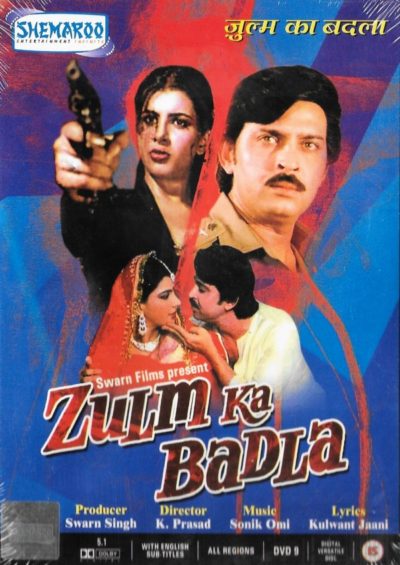 In recent years, the gap in cinema between Bollywood and Hollywood has closed dramatically. The likes of Indian blockbusters such as RRR (technically Tollywood rather than Bollywood) can stand, in terms of technical competence, beside their American equivalents. It’s mostly due to a dramatic improvement from Asia, because it wasn’t always the case, as we see when we go back to the mid-eighties for this slice of vengeance served cold. It looks pretty rough if you compare it to what Hollywood was making at the time, and in many ways feels like it’s about twenty years older than it is. I still found it more watchable than I expected, but then, I’m somewhat used to the style of Indian cinema. Newcomers might find this a bumpy ride.
In recent years, the gap in cinema between Bollywood and Hollywood has closed dramatically. The likes of Indian blockbusters such as RRR (technically Tollywood rather than Bollywood) can stand, in terms of technical competence, beside their American equivalents. It’s mostly due to a dramatic improvement from Asia, because it wasn’t always the case, as we see when we go back to the mid-eighties for this slice of vengeance served cold. It looks pretty rough if you compare it to what Hollywood was making at the time, and in many ways feels like it’s about twenty years older than it is. I still found it more watchable than I expected, but then, I’m somewhat used to the style of Indian cinema. Newcomers might find this a bumpy ride.
It begin with an attack on military official Colonel Rajesh, in which he and his wife are killed by JK (Kapoor) and his men. Their son is missing, presumed dead, leaving young daughter Geeta (Raj) the only survivor. She is adopted by Rajesh’s friend, Inspector Verma, and grows up in his house, eventually marrying the cop’s son, Anil (Rakesh), who has followed his father into the police force. Geeta has learned to take care of herself, as we see when she handily disposes of some ruffians on the beach. But it’s only when she accidentally sees a photograph given to her husband, that her long-repressed memories of the attack surface, and an insatiable thirst for revenge is born.
On the action level, let’s be honest, this is a bit crap, with Geeta doing little more than semi-competent kicking, but being made to look like she is flying through the air, in a way a cheap seventies chop-socky movie would reject as poorly executed. [It seems Geeta is actually pregnant at this point too!] However, this is made up for by some quite intense drama, not least that her brother survived, albeit with amnesia and is now one of JK’s lieutenants. He feels a bond to Geeta, though can’t quite figure out why. There are the inevitable musical numbers, too; most are at least semi-integrated into the plot, Geeta using her seductive skills to get close to her targets. Though might I suggest that, when a woman sings a song at you whose lyrics include the lines. “Now I’ve decided either to kill you or die myself,” that caution might be the best approach.
There are some moments which definitely stretch disbelief. After Geeta is forced on the run, she disguises herself as a nun, and it appears that slapping a wimple on your head and wearing glasses is an impenetrable disguise, which neither her foster father nor husband can penetrate. However, at least they don’t try and pass the thoroughly attractive Raj off as a man (I’m talking to certain Hong Kong films here!). Her brother helps, by breaking the final target out of prison, so they can unite and take revenge together. Which is nice. Naturally, they’re not allowed to get away with it in eighties Bollywood movies, making for a rather bittersweet ending. If it’s all more than a little shaky around the edges, its heart is both large and in the right place.
Dir: Chand and K. Prasad
Star: Anita Raj, Danny Denzongpa, Rakesh Roshan, Shakti Kapoor





 A decade after the splattery joy which was
A decade after the splattery joy which was  Zombies and jail aren’t quite as new an idea as you might think. The Walking Dead had a major arc which took place at a prison, the facility’s fences now more useful for keeping things out than in. And back in 2005, The Asylum released the (surprisingly decent)
Zombies and jail aren’t quite as new an idea as you might think. The Walking Dead had a major arc which took place at a prison, the facility’s fences now more useful for keeping things out than in. And back in 2005, The Asylum released the (surprisingly decent) 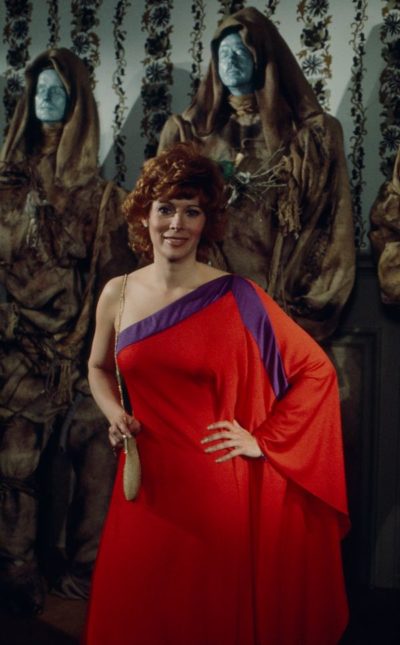 No, not the eighties version of Brenda Starr: that is well known, and justifiably much derided, to the point it didn’t even reach the necessary level for inclusion here. But neither was it the first version of the comic-strip to reach the screen. Well, at least the small screen. There had previously been a 1945 series, Brenda Starr, Reporter, though some reports describe this as nearly action-free. But the late seventies saw two television efforts: as well as the one under discussion here, three years later in 1979, there was an unsold television pilot movie (now apparently lost) in which Sherry Jackson played the intrepid girl journalist. In contrast, this appears to have been intended as a stand-alone from the get-go. While I’m sure ABC wouldn’t have minded had this been successful enough to become a franchise, it suffers from much the same problem as all the other adaptations, with a heroine that’s too passive to pass muster
No, not the eighties version of Brenda Starr: that is well known, and justifiably much derided, to the point it didn’t even reach the necessary level for inclusion here. But neither was it the first version of the comic-strip to reach the screen. Well, at least the small screen. There had previously been a 1945 series, Brenda Starr, Reporter, though some reports describe this as nearly action-free. But the late seventies saw two television efforts: as well as the one under discussion here, three years later in 1979, there was an unsold television pilot movie (now apparently lost) in which Sherry Jackson played the intrepid girl journalist. In contrast, this appears to have been intended as a stand-alone from the get-go. While I’m sure ABC wouldn’t have minded had this been successful enough to become a franchise, it suffers from much the same problem as all the other adaptations, with a heroine that’s too passive to pass muster I was disappointed by the lack of tentacles. However, there were certainly no shortage of teeth in this post-apocalyptic tale, which takes place decades after the arrival of monsters, from an uncertain source, has led to the collapse of civilization on Earth. The survivors are left to scratch out a fragile existence, trying to dodge the many kinds of lethal new fauna which inhabit the landscape. Askari is a young woman who forms part of one such nomadic group, but finds herself increasingly questioning the strict rules by which they operate. As punishment for breaking these laws, is sent by elders of her tribe on a hazardous mission into a long-abandoned urban area.
I was disappointed by the lack of tentacles. However, there were certainly no shortage of teeth in this post-apocalyptic tale, which takes place decades after the arrival of monsters, from an uncertain source, has led to the collapse of civilization on Earth. The survivors are left to scratch out a fragile existence, trying to dodge the many kinds of lethal new fauna which inhabit the landscape. Askari is a young woman who forms part of one such nomadic group, but finds herself increasingly questioning the strict rules by which they operate. As punishment for breaking these laws, is sent by elders of her tribe on a hazardous mission into a long-abandoned urban area. Carla (Williams) and her boyfriend Daniel (Davis) are all set for a nice weekend in the mountains. Unfortunately, the snowmobile trip runs into difficulty, in particular coming in the shape of a pair of cartel assassins. What, you may ask, are a pair of cartel assassins doing half-way up a snowy mountain in [I’m guessing] the Colorado Rockies? Good question. I’m glad you asked. They are after a robber who made the ill-advised decision to rob a bar which was a front for their organization. He’s now hiding out, half-way up the aforementioned snowy mountain, in the belief he’s safe. Turns out not to be the case.
Carla (Williams) and her boyfriend Daniel (Davis) are all set for a nice weekend in the mountains. Unfortunately, the snowmobile trip runs into difficulty, in particular coming in the shape of a pair of cartel assassins. What, you may ask, are a pair of cartel assassins doing half-way up a snowy mountain in [I’m guessing] the Colorado Rockies? Good question. I’m glad you asked. They are after a robber who made the ill-advised decision to rob a bar which was a front for their organization. He’s now hiding out, half-way up the aforementioned snowy mountain, in the belief he’s safe. Turns out not to be the case.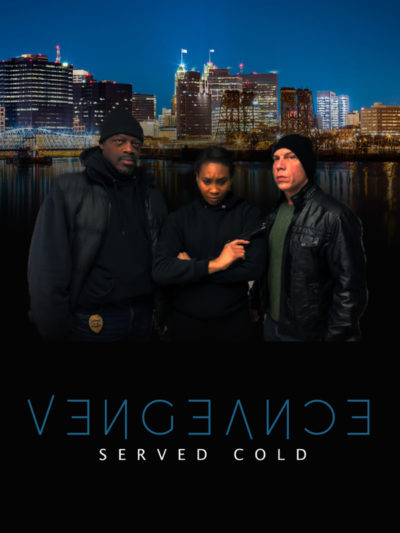 At the age of fifteen, Madison Michaels saw her prostitute mother beaten and killed by Renegade (Cross), a vicious local pimp. His homicide goes unpunished. Ten years later, Madison (Linton) is a counsellor, trying to help drug addicts and hookers get off the streets. She discovers that Renegade is still abusing women, and gets no help from the police, with Detective Straker (Williams) saying he can do nothing based on her hearsay. Against the advice of her friends and sister Lydia (Jeffries), Madison hatches a plan to take the pimp down, and clean the streets of thus piece of scum. Naturally, it doesn’t initially go quite as planned, with the trap set for Renegade backfiring, followed by betrayal from an unexpected direction.
At the age of fifteen, Madison Michaels saw her prostitute mother beaten and killed by Renegade (Cross), a vicious local pimp. His homicide goes unpunished. Ten years later, Madison (Linton) is a counsellor, trying to help drug addicts and hookers get off the streets. She discovers that Renegade is still abusing women, and gets no help from the police, with Detective Straker (Williams) saying he can do nothing based on her hearsay. Against the advice of her friends and sister Lydia (Jeffries), Madison hatches a plan to take the pimp down, and clean the streets of thus piece of scum. Naturally, it doesn’t initially go quite as planned, with the trap set for Renegade backfiring, followed by betrayal from an unexpected direction.  Mildred Moyer (Chamberlain) has a problem, and it’s as plain as the nose on her face. Actually, it
Mildred Moyer (Chamberlain) has a problem, and it’s as plain as the nose on her face. Actually, it 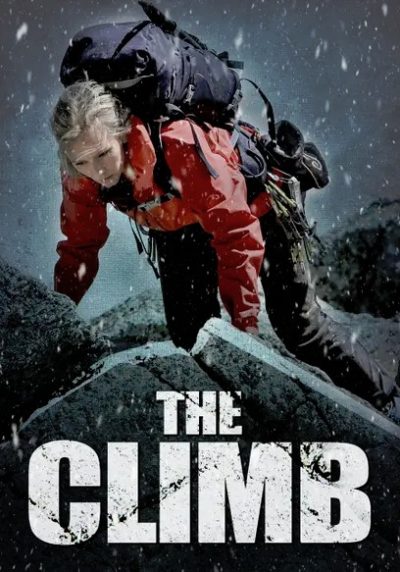 I was really surprised to discover that this French film is actually made for television. It has a certain gravitas and thoughtfulness to it, that you rarely find in a genre which is (often rightfully) derided as being formulaic and cliched. This doesn’t escape those criticisms entirely – in particular, there’s a “Disease of the Week” subplot, which does feel as it it might have strayed in from Lifetime or Hallmark. However, even there, it feels handled in a relatively natural manner, rather than being shoehorned in there to elicit sympathy from the viewer. It definitely looks better than most TVMs out of Hollywood. Whether this is down to Félix von Muralt’s cinematography, or simply the stunning Alpine landscapes, is open to debate.
I was really surprised to discover that this French film is actually made for television. It has a certain gravitas and thoughtfulness to it, that you rarely find in a genre which is (often rightfully) derided as being formulaic and cliched. This doesn’t escape those criticisms entirely – in particular, there’s a “Disease of the Week” subplot, which does feel as it it might have strayed in from Lifetime or Hallmark. However, even there, it feels handled in a relatively natural manner, rather than being shoehorned in there to elicit sympathy from the viewer. It definitely looks better than most TVMs out of Hollywood. Whether this is down to Félix von Muralt’s cinematography, or simply the stunning Alpine landscapes, is open to debate.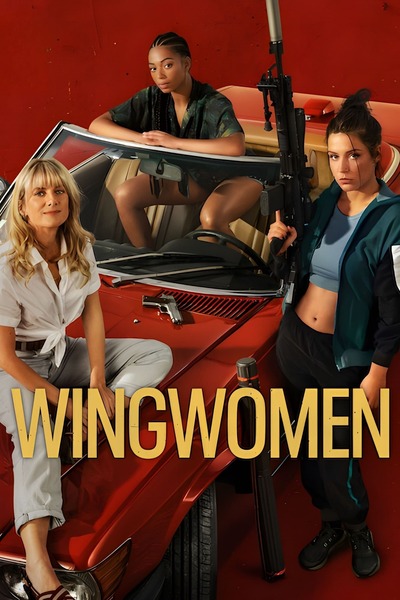 Netflix describes this as “Charlie’s Angels meets Lupin, with a dash of Killing Eve.” Um. About that… While I haven’t seen Lupin, I can confidently state any similarity to the others is tangential at best. For example, the only thing this really has in connection with Charlie’s Angels, is that there’s three of them. But here, it’s more like 2.25, since the third member is largely useless. It’s almost entirely the story of Carole (Laurent) and Alex (Exarchopoulos), two thieves who work for the enigmatic Marraine (Adjani). But Carole has discovered she’s pregnant and wants out of the business. Marraine is not happy, but agrees, providing Carole does that hoariest of film clichés: One Last Job.
Netflix describes this as “Charlie’s Angels meets Lupin, with a dash of Killing Eve.” Um. About that… While I haven’t seen Lupin, I can confidently state any similarity to the others is tangential at best. For example, the only thing this really has in connection with Charlie’s Angels, is that there’s three of them. But here, it’s more like 2.25, since the third member is largely useless. It’s almost entirely the story of Carole (Laurent) and Alex (Exarchopoulos), two thieves who work for the enigmatic Marraine (Adjani). But Carole has discovered she’s pregnant and wants out of the business. Marraine is not happy, but agrees, providing Carole does that hoariest of film clichés: One Last Job.